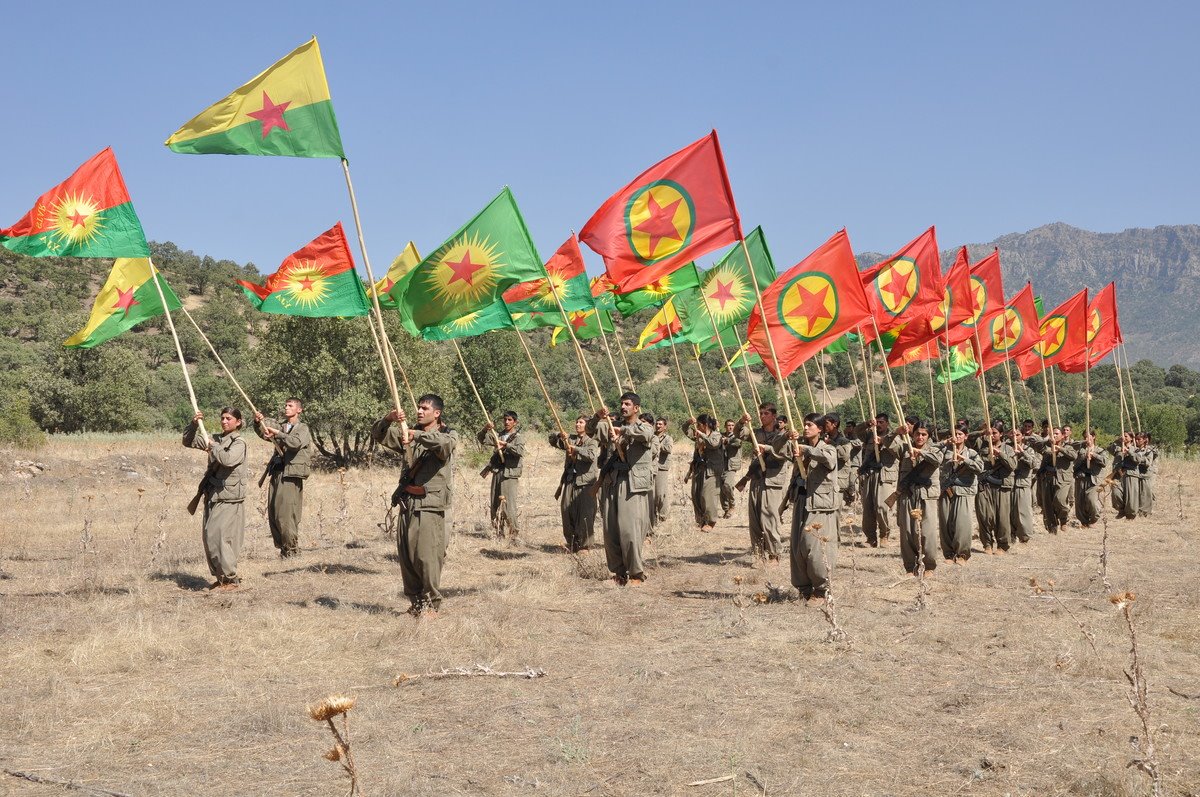In an announcement on Monday, the Kurdistan Workers’ Party (PKK) announced that they have agreed to totally disarm and disband, aiming to end a multi-decade conflict with the Turkish government.
Turkish President Erdogan praised the move, calling it a move toward “peace and fraternity” in Turkey. Tens of thousands of Kurds were killed in the conflict, according to the Turkish government, since the PKK began armed resistance in 1984.
The dissolution of the PKK was agreed upon at a party congress meeting in northern Iraq on Friday, though the announcement, which was called “pending” at the time, only came on Monday.

PKK fighters | Image is from Wikimedia, licensed under Creative Commons 2.0
The PKK is labeled a terrorist organization in Turkey and has been banned in Germany (which has a large Turkish population) since 1993. The EU also has considered it a terrorist organization since 2002. Germany says its dissolution won’t change their stance of banning them.
The PKK has its origins in the military coups in Turkey in 1971 and 1980. After the 1980 coup, Turkey banned Kurdish language use in public or private, and started imprisoning Kurdish speakers. They also banned traditional Kurdish clothing and even forbade giving children a Kurdish name.
This fueled a violent insurgency, which was cracked down on heavily for decades. The Turkish government didn’t officially even recognize the Kurdish people as a distinct population until 1991, previously simply categorizing them as “Mountain Turks.”
The PKK’s founder and leader was Abdullah Öcalan who was captured in 1999 and is still being held by Turkey. He called for the PKK to be disbanded back in February via a statement from his prison on Imrali island. He also reported submitted a statement to the party congress that met Friday and decided to disband.
Öcalan said that the insurgency had reach a point that the “Kurdish issue” could be resolved through democratic politics. The end of the PKK could also have impact internationally, at least so far as the Turkish government is concerned.
That’s because Turkey has tended to present Kurdish separatist movements in other countries as effectively wings of the PKK. The clearest example is in Syria, where the largest member of the Kurdish SDF bloc, the YPG, is officially considered by Turkey to be part of the PKK, and subsequently Turkey has been targeting the SDF militarily for years on this basis.
Since the YPG is actually a different group, though ideologically similar, the dissolution won’t impact them, but it might well impact Turkey’s official position on the SDF, as they would no longer be able to claim them to be part of a banned Turkish organization if that organization no longer exists.


